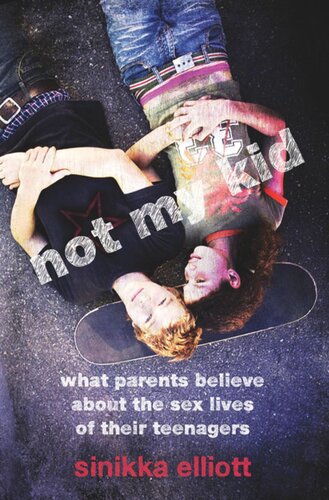

Most ebook files are in PDF format, so you can easily read them using various software such as Foxit Reader or directly on the Google Chrome browser.
Some ebook files are released by publishers in other formats such as .awz, .mobi, .epub, .fb2, etc. You may need to install specific software to read these formats on mobile/PC, such as Calibre.
Please read the tutorial at this link: https://ebookbell.com/faq
We offer FREE conversion to the popular formats you request; however, this may take some time. Therefore, right after payment, please email us, and we will try to provide the service as quickly as possible.
For some exceptional file formats or broken links (if any), please refrain from opening any disputes. Instead, email us first, and we will try to assist within a maximum of 6 hours.
EbookBell Team

4.8
74 reviewsTeenagers have sex. While almost all parents understand that many teenagers are sexually active, there is a paradox in many parents’ thinking: they insist their own teen children are not sexual, but characterize their children’s peers as sexually-driven and hypersexual. Rather than accuse parents of being in denial, Sinikka Elliott teases out the complex dynamics behind this thinking, demonstrating that it is rooted in fears and anxieties about being a good parent, the risks of teen sexual activity, and teenagers’ future economic and social status. Parents—like most Americans—equate teen sexuality with heartache, disease, pregnancy, promiscuity, and deviance and want their teen children to be protected from these things.Going beyond the hype and controversy, Elliott examines how a diverse group of American parents of teenagers understand teen sexuality, showing that, in contrast to the idea that parents are polarized in their beliefs, parents are confused, anxious, and ambivalent about teen sexual activity and how best to guide their own children’s sexuality. Framed with an eye to the debates about teenage abstinence and sex education in school, Elliott also links parents’ understandings to the contradictory messages and broad moral panic around child and teen sexuality. Ultimately, Elliott considers the social and cultural conditions that might make it easier for parents to talk with their teens about sex, calling for new ways of thinking and talking about teen sexuality that promote social justice and empower parents to embrace their children as fully sexual subjects.